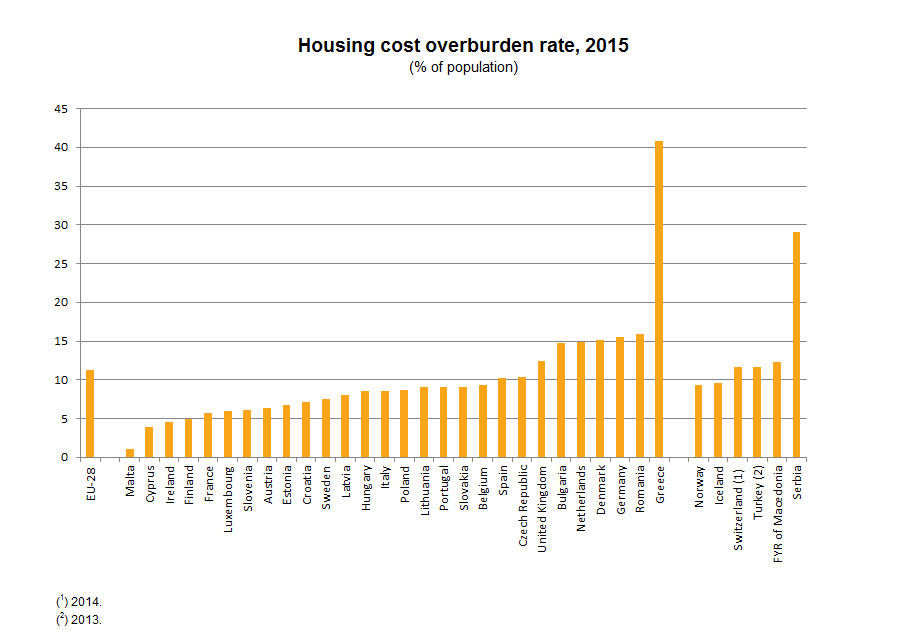 Costs relating to housing are the main items of expenditure for many European households. In the European context, these expenses include rental or mortgage interest payments but also the cost of utilities such as water, electricity, gas or heating. Such costs are considered as an excessive burden when they represent more than 40 % of equivalised disposable income.
Costs relating to housing are the main items of expenditure for many European households. In the European context, these expenses include rental or mortgage interest payments but also the cost of utilities such as water, electricity, gas or heating. Such costs are considered as an excessive burden when they represent more than 40 % of equivalised disposable income.
In 2015, 11.3 % of the EU population lived in households which spent 40 % or more of their disposable income on housing. There are significant differences between the EU Member States. At one extreme there are a number of countries where a relatively small proportion of the population live in households where housing costs exceeded 40 % of their disposable income, notably Malta (1.1 %), Cyprus (3.9 %), Ireland (4.6 %) and Finland (4.9 %). At the other extreme, 40.9 % of people in Greece and just below one in six of the population in Romania (15.9 %), Germany (15.6 %) and Denmark (15.1 %) spent more than 40 % of their disposable income on housing.
For more information, see Eurostat's Statistics Explained article on housing statistics.
For further information on equivalised disposable income, see our glossary.


